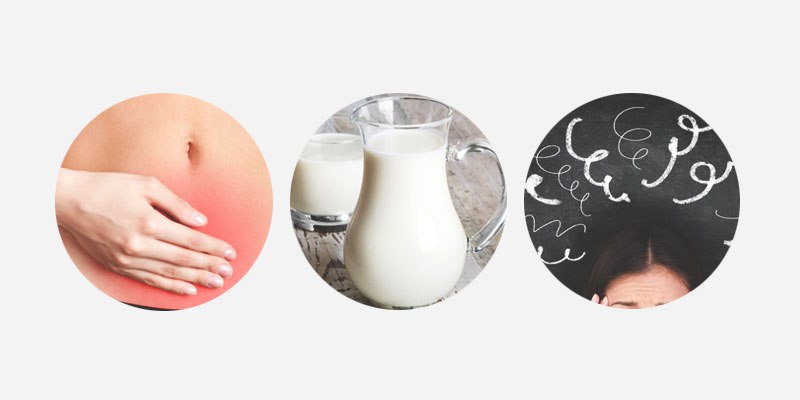Many of us may believe that acne is something meant just for teenagers (and for when you over-indulge in greasy goodies and sweet treats). However, millions of people suffer from adult acne and are finding that many of their tried-and-true treatments from their teenage years aren’t working on their adult breakouts (American Academy of Dermatology). In adulthood, you are generally finished with drastic hormonal fluctuations and bodily changes – so what’s with the breakouts? We wanted to dedicate today’s post to investigating three major factors that may be causing your adult acne.
Polycystic Ovary Syndrome
Polycystic ovary syndrome (PCOS) affects only females of reproductive age, but is still a serious condition deserving of immediate medical attention. PCOS is an endocrine disease that may enlarge the ovaries, affect a woman’s fertility, cause infrequent or prolonged menstrual cycles, ovarian cysts, encourage abnormal or excessive hair growth, hair thinning, weight gain, and acne breakouts, among numerous other complications. While researchers are still unsure of what triggers PCOS, there is reason to believe that it may be due to an overproduction of androgen hormones by the ovaries, which affects the release of eggs when ovulating. Recent research would also seem to suggest that many women with PCOS tend to have excessive levels of insulin, which may in turn affect androgen production (Mayo Clinic, WomensHealth.gov). As any skin care aficionado would know, many research studies have found that androgen hormones can encourage sebum production in the skin and frequently lead to breakouts. Additionally, those who have acne-prone skin may also be more sensitive to androgen hormones, which may also induce further breakouts (The Journal of Clinical and Aesthetic Dermatology). While more research is required to confirm a relationship, it is possible that the androgen over-production in those with PCOS may induce acne breakouts by triggering sebum production.
Heightened Stress Levels
Few acne triggers are as controversial as stress. We all know that stress certainly doesn’t benefit the mind or the body – but does that mean that it can give you acne breakouts as well? This correlation is hotly debated amongst the research community. For example, research published in Acta Dermato-Venereologica suggested that although there seemed to be a positive correlation between heightened stress levels and increased severity of acne papulopustula, this relationship was likely not due to stress affecting the level of sebum production. Research published in the journal Archives of Dermatology similarly suggested a relationship between increased stress levels and acne breakouts, although they too were unsure as to what exactly was causing this relationship. Some individuals may pick at their pimples when anxious or nervous, thus posing one potential explanation of why stress is often linked with acne breakouts. It has also been suggested that high levels of stress may encourage androgen overproduction, which may in turn exacerbate acne. While lowering your stress level may not eliminate acne, it certainly will help your overall mental and physical health (WebMD, American Academy of Dermatology).
A Diet Rich in Dairy and High Glycemic Load Foods
The composition of one’s diet has also been touted as a significant potential acne trigger, although there is no formal consensus as to dairy’s effect on acne, nor that of high glycemic load diets. For example, research published both in the Journal of the American Academy of Dermatology and Molecular Nutrition and Food Research suggested that following a lower glycemic load diet may alleviate acne breakouts. Studies published in the Journal of the American Academy of Dermatology and Dermatology Online Journal also seemed to suggest that there was a positive relationship between dairy intake and acne breakouts. However, it is important to remember that each of these studies varied in terms of their design and size/composition of their participant pool. In addition, many of these studies did not study the same foods, which complicates our understanding of “dairy foods” and how they can affect the skin, especially amongst diverse populations. If you are suffering from chronic breakouts and believe that your diet may be an aggravating factor, they you should consult with your dermatologist as soon as possible.
Bottom Line
Despite its prevalence amongst both teenagers and adults, scientists are still not sure what exactly causes acne breakouts. Polycystic ovary syndrome, heightened stress levels, and a diet rich in dairy and high glycemic load foods have all been linked to an increased risk of acne breakouts, although more research is required in order to confirm these relationships. If you are suffering from chronic or worsening acne breakouts, we suggest speaking with your dermatologist as soon as possible, as this may be indicative of a more serious underlying condition. In addition to topical and oral therapies, we suggest using the ViaBuff Level 1 Exfoliating Buff, a dermatologist-tested and cruelty-free buff that was designed specifically to exfoliate acne-ridden skin.







Comments 1
Pingback: Follow Friday + Nicki's Personal Updates: Make the Process Fun and Easy - FutureDerm